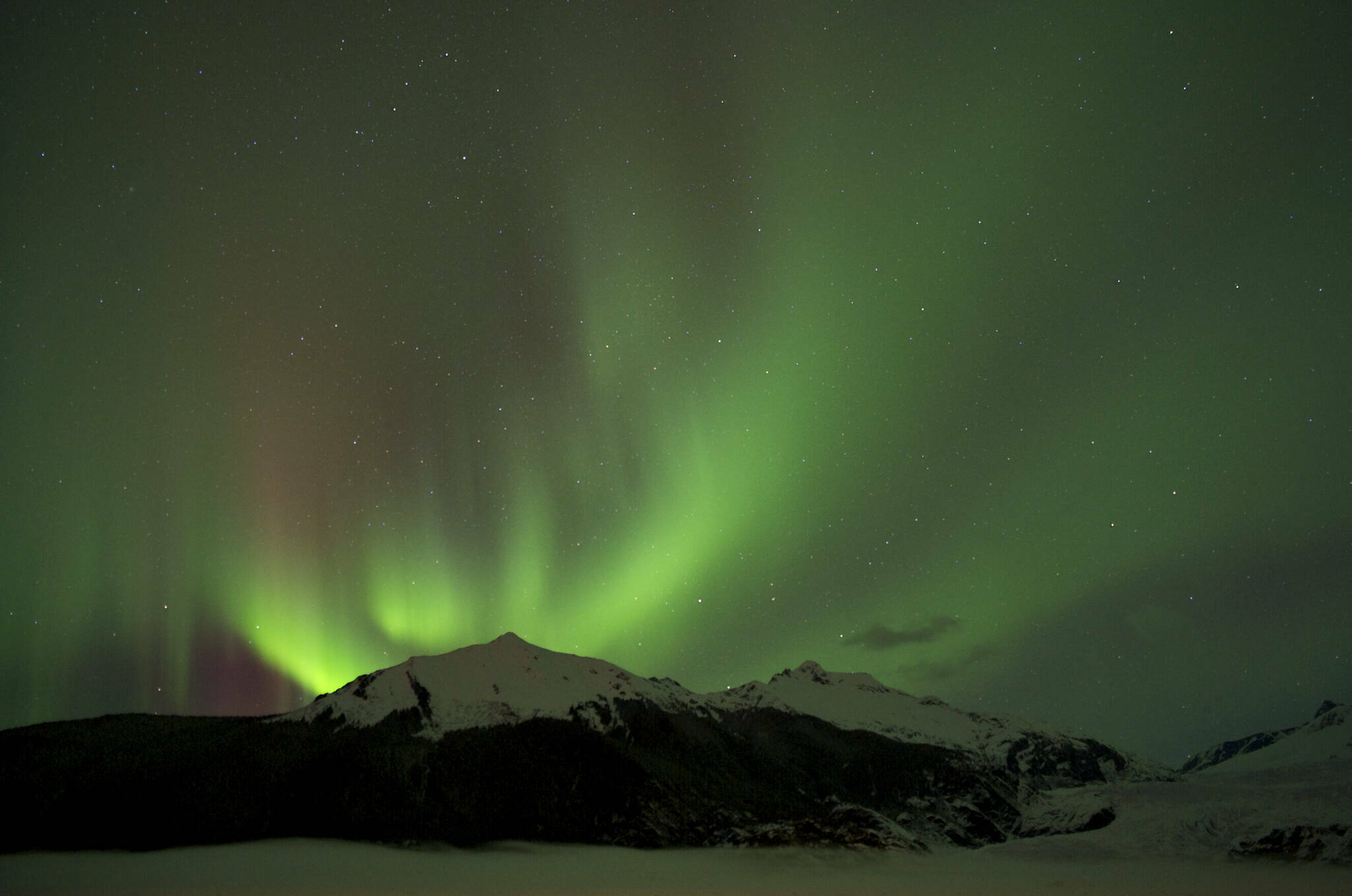These forecasts are courtesy of the University of Alaska Fairbanks’ Geophysical Institute and available online, along with more data, at www.gi.alaska.edu/monitors/aurora-forecast. The listings below will be updated and published weekly until next spring.
Monday, Feb. 5
Auroral activity will be high. Weather permitting, highly active auroral displays will be visible overhead from Utqiaġvik to Bethel, Dillingham and Ketchikan, and visible low on the horizon from King Salmon. Moon phase: Last Quarter.
Tuesday, Feb. 6
Auroral activity will be moderate. Weather permitting, moderate displays will be visible overhead from Utqiaġvik to as far south as Talkeetna and visible low on the horizon as far south as Bethel, Soldotna and Southeast Alaska. Moon phase: Last Quarter.
Wednesday, Feb. 7
Auroral activity will be low. Weather permitting, low-level displays will be visible overhead from Utqiaġvik to Fairbanks and visible low on the northern horizon from as far south as Anchorage and Juneau. Moon phase: Waning Crescent.
Thursday, Feb. 8
Auroral activity will be low. Weather permitting, low-level displays will be visible overhead from Utqiaġvik to Fairbanks and visible low on the northern horizon from as far south as Anchorage and Juneau. Moon phase: Waning Crescent.
Friday, Feb. 9
Auroral activity will be low. Weather permitting, low-level displays will be visible overhead from Utqiaġvik to Fairbanks and visible low on the northern horizon from as far south as Anchorage and Juneau. Moon phase: Waning Crescent.
Saturday, Feb. 10
Auroral activity will be low. Weather permitting, low-level displays will be visible overhead from Utqiaġvik to Fairbanks and visible low on the northern horizon from as far south as Anchorage and Juneau. Moon phase: New Moon.
Sunday, Feb. 11
Auroral activity will be low. Weather permitting, low-level displays will be visible overhead from Utqiaġvik to Fairbanks and visible low on the northern horizon from as far south as Anchorage and Juneau. Moon phase: New Moon.

